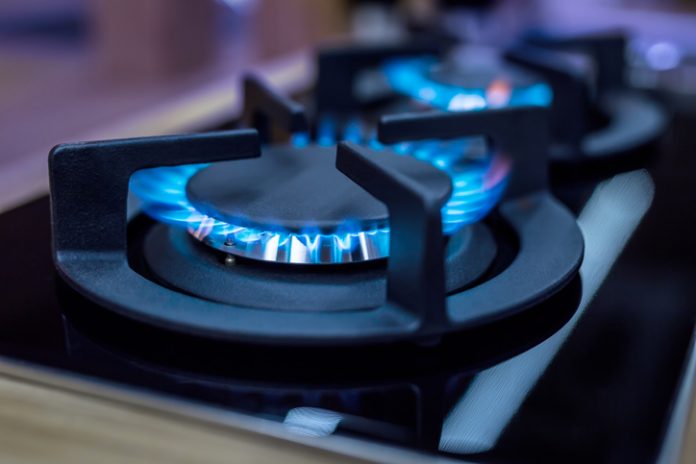A federal appeals court decision is complicating local and state efforts to ban new natural gas hook ups for appliances directly—or indirectly by banning the installation of gas lines in new buildings.
In California Restaurant Association v. City of Berkeley, a three-judge panel of the Ninth Circuit Court of Appeals overturned a lower court’s ruling allowing the municipality to ban the installation of new natural gas lines, in a unanimous decision on April 17.
“Berkeley’s prohibition against natural gas was seen as the first city-level law aimed at forcing developers and building owners to switch to building all-electric new buildings,” states Goldberg Segalla on the website of JD Supra, a legal service. “Since the ban became effective in January 2020, “more than 70 different city and state governments have adopted their own versions. …”
‘Preemption … Encompasses Building Codes’
The California Restaurant Association (CRA) sued to block Berkeley’s ban. They argued the ban would harm both new restaurants that rely on natural gas hookups for stoves and other appliances, as well as restaurants that simply desired to move to another location.
Legally, the CRA argued the 1975 Energy Policy and Conservation Act (EPCA) “expressly preempts” local regulations concerning the energy use of natural gas appliances and Berkeley’s ban on new gas lines was an illegal back-door attempt to ban such appliances.
The Ninth Circuit Court agreed with the CRA in the opinion by Judge Patrick J. Bumatay.
“The panel held that, by its plain text and structure, the Act’s preemption provision encompasses building codes that regulate natural gas use by covered products,” wrote Bumatay. “By preventing such appliances from using natural gas, the Berkeley building code did exactly that.
“EPCA would no doubt preempt an ordinance that directly prohibits the use of covered natural gas appliances in new buildings,” wrote Bumatay. “So Berkeley can’t evade preemption by merely moving up one step in the energy chain and banning natural gas piping within those buildings.”
‘Plain Mandate of Federal Law’
This ruling will benefit the food and beverage industry in Berkeley and California as a whole, said Courtland L. Reichman, managing partner at the firm representing the CRA, in a press release.
“We are extremely pleased the Ninth Circuit enforced the plain mandate of federal law on the critical issue of national energy policy,” Reichman said. “At stake was the CRA members’ ability to conduct business in the state of California, which puts not only the future of restaurants at risk, but also the vibrant culture and the jobs that those restaurants bring to the area.”
One Down, Others to Go
Berkeley’s regulation would have set a precedent that impacted national energy policy, , and the Ninth Circuit’s decision will set precedent for gas bans elsewhere, said Sara O. Jorgensen, an attorney for the CRA.
“Congress intended to set a national energy policy, and cities and states cannot bypass federal preemption by regulating piping instead of natural gas products,” Jorgensen said. “The panel’s unanimous decision that Berkeley’s ban on natural gas piping is preempted by EPCA sets an important precedent for future cases, especially with other cities and states considering restrictions on natural gas, and it prevents a patchwork of disparate regulations and protects consumer choice.”
Berkeley has not been alone in attempting to limit or outright ban the use of gas appliances in homes and businesses.
In Maryland, developers would be required to follow electric-only building codes for new construction, as mandated under their Climate Solutions Now Act of 2022.
In New York state, all new residential construction must be electric-only by 2029.
‘Mindless Climate Agenda’
The attempted Berkeley gas line ban shows how far those pushing policies to fight climate change will go, even to the point of twisting and reinterpreting the law, says Steve Milloy, founder and publisher of JunkScience.com, and a member of the board of directors of The Heartland Institute.
“While it’s great that the even a left-leaning court like the 9th Circuit was compelled to apply federal preemption doctrine to void Berkeley’s silly rule against gas appliances, the whole episode shows how determined the ‘democracy dies in darkness’ left is to circumvent facts, laws, and democratic processes to implement its mindless climate agenda,” Milloy said.
In the aftermath of the Ninth Circuit’s opinion, Washington state, one of the several states under the jurisdiction of that court of appeals, placed a hold on their anti-natural gas plans. The Washington Building Code Council (SBCC) passed rule similar to Berkeley’s in 2022 that would have effectively banned natural gas appliances statewide, beginning July 1.
By a vote of eight to two, the SBCC voted to delay the mandate for 120 days. It also approved a motion to revise the building code, if possible, to minimize the chances its anti-gas appliance rule could be effectively challenged and overturned by the courts.
“We need to comply with their ruling or else leave ourselves and our building officials open to legal risk,” said Kjell Anderson, the SBCC member who made the motion to delay the rules.
Linnea Lueken (llueken@heartland.org) is a research fellow with the Arthur B. Robinson Center on Climate and Environmental Policy at The Heartland Institute.
For more on local and state gas restrictions, click here.
For more on federal gas restrictions, click here.


























